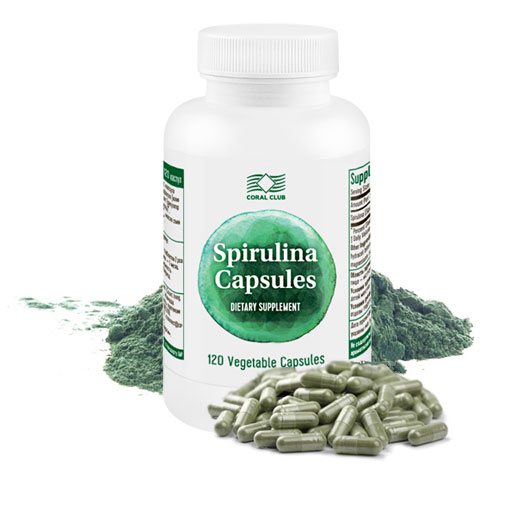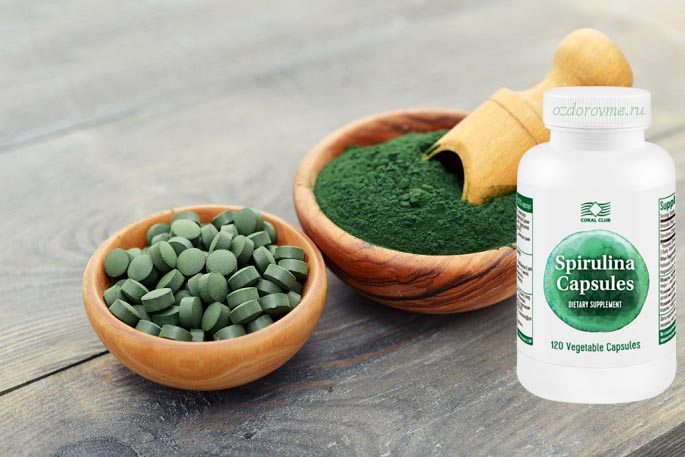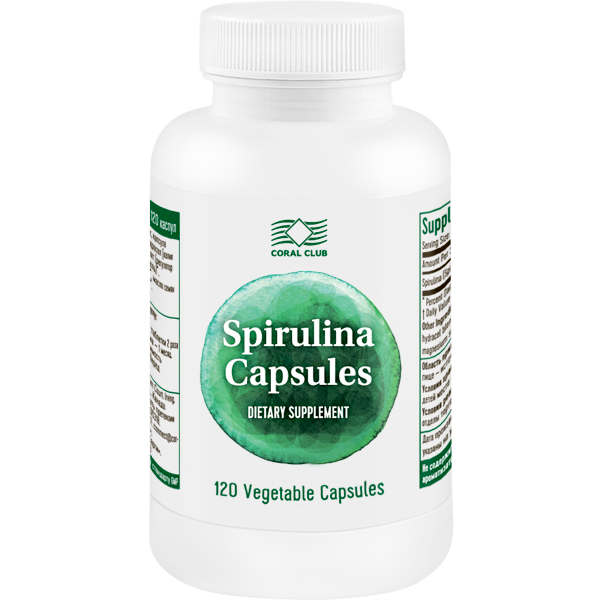Spirulina Capsules: A Therapeutic Diet

Spirulina is actively used as a food in over 70 countries. According to the WHO, this alga is one of the major therapeutic dietary components in the 21st century. It has excellent nutritive properties, produces beneficial therapeutic effects, compensates vitamin and mineral deficiency, participates in normalizing blood cholesterol, controls arterial pressure, stabilizes sugar levels, normalizes protein, carbohydrate and fat metabolism, and eliminates radionuclides from the body. Spirulina Capsules was developed to make these unique qualities available to everybody.
A mixture of polyunsaturated fatty acids contained in Spirulina plays an important role in regulation of intracellular processes, has a pronounced antisclerotic effect, marked antiplatelet action, and as a result exhibits anti-ischemic activity and stimulates heart function.
Spirulina is also indicated for people who experience problems with digestion, especially for the elderly, who are prone to constipation. It increases considerably the populations of lactobacteria and bifidobacteria in the gut. The consumption of Spirulina by elderly people at a daily dose of 2 g can substantially reduce the levels of total blood cholesterol and decrease renal toxicity caused by drugs and heavy metals.
People who have lost their appetite due to surgery or other disorders can use Spirulina as a concentrated source of protein and vitamins. For people with ulcerative colitis, indigestion, or intolerance to certain products, Spirulina can rapidly provide all necessary nutrients in their concentrated form, without overloading the gastrointestinal tract.

Spirulina contains a great wealth of iodine, proteins, vitamins and participates in correcting metabolic disorders associated with thyroid dysfunctions and metabolic disorders caused by vitamin, mineral or protein deficiency.
Usage:
Spirulina Capsules is efficient in prophylaxis of:
• Protein, vitamin and mineral deficiency;
• Immunodeficiency;
• Hypothyroidism;
• A buildup of plaque and associated diseases;
• Constipation and microbial imbalances.
Be Smart. Be Coral. Be Yourself!



Add Comment